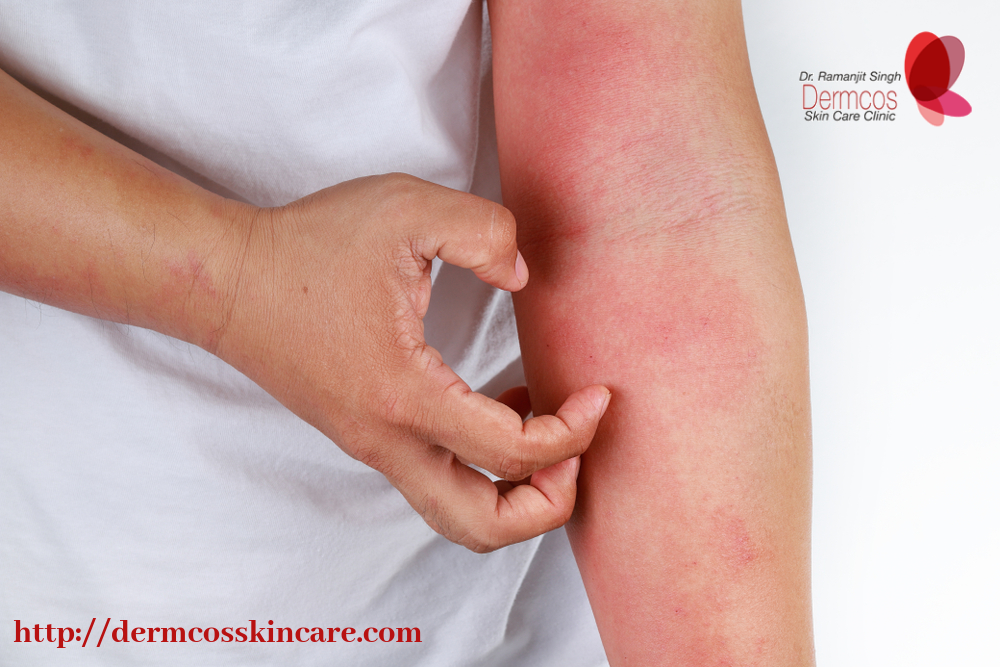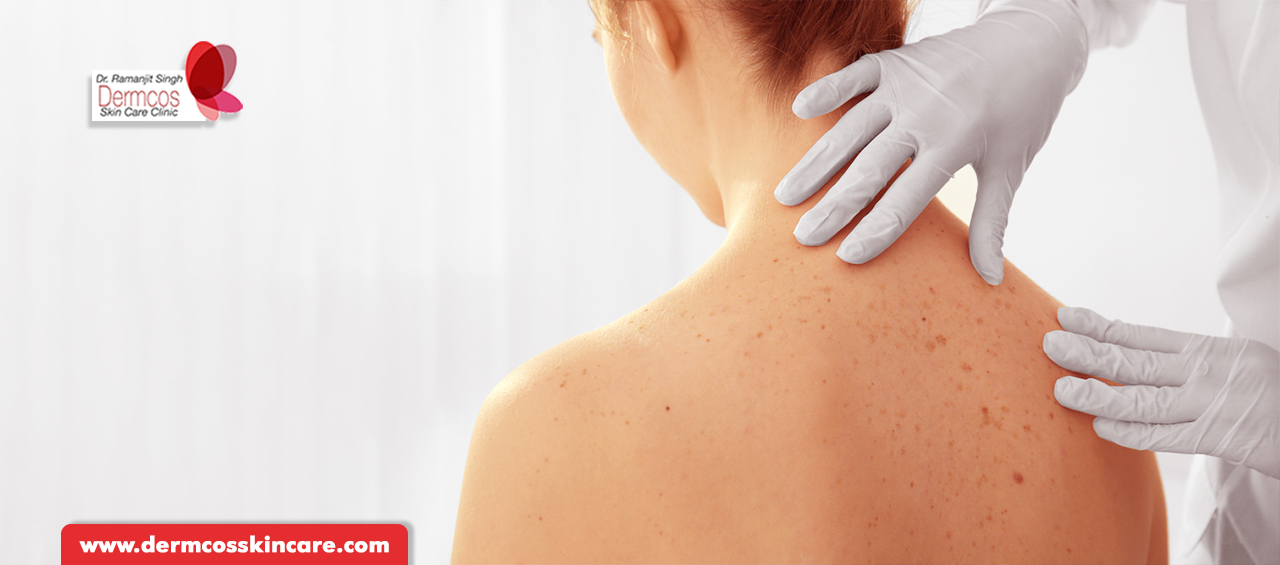Everyone has experienced itching sometimes in life. However, due to factors like food allergy, an extremely cold climate, and excessive pollution can result in more severe skin problems. According to the top Skin Care Clinic in Gurgaon, if your skin shows red itchy rashes that are persistent you may have atopic dermatitis. Apart from the external factors genetics also contributes to this condition. Both children and adults can be affected by atopic dermatitis, but it can strike even in infants. Skin Doctor in Gurgaon suggests that the common symptoms of the condition include red crusted scaly areas that get darker and thicker if scratched. Management of atopic dermatitis can be complex due to the interplay of genetic and environmental reasons. Every Skin Doctor in Gurgaon would relate to the reasons for the complicated management of the disease.
Incorrect Diagnosis
Atopic dermatitis is often diagnosed by physical examination for appearance, distribution, and chronicity along with the personal and family history of atopy. The symptoms are likely baffled with another skin immunodeficiency, metabolic diseases, infection, drug reaction, etc. This erroneous identification of disease leads to an improper line of treatment and complicates the management of the actual disease.
Lack of Education and Compliance
Another reason for complications in atopic dermatitis is inadequate administration and knowledge. It is important to educate the patient and his/her caregivers about the disease and correct application of ointments, etc. In many cases patients are not aware of the correct frequency of the application of medicine or the application may be left to children who can effectively apply medicine which adversely affect the compliance of the treatment. This complicates the condition even if the treatment is taken from the specialist Skin Care Clinic in Gurgaon.
Hypersensitivity Reaction
Sometimes the environmental factors or active ingredients of the ointments inflame the skin area due to immune hypersensitivity. Patients who face flared symptoms are oftentimes considered for the testing performed by the dermatologists for necessary alterations in medication. Such patients are prescribed with amines, alkenes, and alkyls which help in delaying the hypersensitivity responses. For this reason, the Skin Doctor in Gurgaon emphasis on constant monitoring and immediate action to any modification in the skin condition of the patient to avoid complexity in management.
Secondary Skin Infection
Patients with atopic dermatitis are also seen to have secondary bacterial or viral skin infections which worsen the skin condition and make the treatment even more difficult. Bacterial skin infection results in painful oozing, crusting lesions, asymmetric distribution, and wide-spreading disease. Infection with herpes simplex virus is also a growing problem with the patients of atopic dermatitis which is considered an emergency in clinical dermatology and initiate immediate systematic antiviral therapy. Many other microbial contaminations can also cause flare and must be attended with no delays.
Food and Aeroallergens
Food induced flares are common in young children. Almost one-third of the infants are known to be affected by them. 5 to 10 percent older children with moderate or severe atopic dermatitis are susceptible to food allergy. This results in huge complexity as the identification of food-related flare in atopic dermatitis patients is not straight forward. Many tests that are used to identify general hypersensitivity reactions are not often effective in such cases and may result in false positives. Specialized skin prick tests and dietary exclusions for a considerable period are preferred to detect flare due to food allergens. Patients who are prone to allergic reactions are advised to stay from dust mites and other triggers. They are also recommended to avoid contact with animals and pets.
Psychological Effect
Psychological effect and emotional response in the patients with atopic dermatitis and their caregivers is as much a matter of concern as the severity of the disease itself. In the case of children, the psychological factors influence not only the patient child but also their parents which are seen to get an increased level of anxiety and depression associated with. The most common result is disturbed sleep and impaired daytime activities for both the patients and caregivers. These factors affect the quality of life and the rigorousness of the diseases. Almost every Skin Care Clinic in Gurgaon advocates the monitoring and recording of the social factors at home and school or workplace as a part of clinical history to determine the extent of atopic dermatitis.
Age Factor
In most of the cases, the atopic dermatitis is diagnosed in children of up to 5 years of age, out of which nearly 70 percent remits by the age of adolescence. The management becomes more difficult if atopic dermatitis persists into adulthood or starts in adulthood, which is as rare as 2 to 8 percent. Adults are found to be more prone to contact irritants and resultant allergic dermatitis. The need for behavioral therapy to mitigate psychological effects is higher in adults.
The aforementioned factors indicate that the complications in atopic dermatitis are apparent which is why you should consider nothing but the best for your treatment. The Dermcoss is the most sought Skin Care Clinic in Gurgaon that promises ideal treatment for the problem with the experienced and skilled doctors and the latest technological support. You get your problem treated with the utmost compassion and impeccable results.



